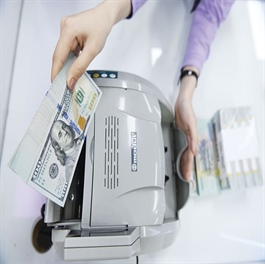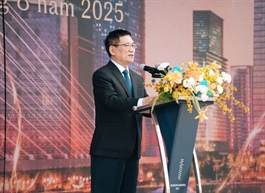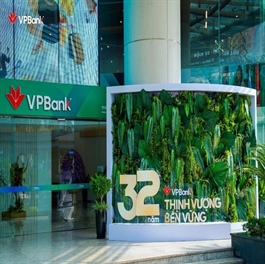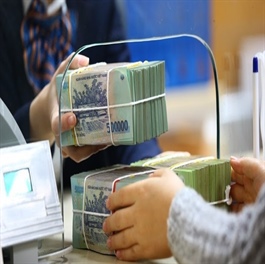Tokenised prospects within a new financial order
Tokenised prospects within a new financial order
As one of Southeast Asia’s most dynamic markets, Vietnam is well-positioned to play a bigger role in the region’s digital finance evolution. Dada Zhuang, chief business officer of digital asset group MEXC Vietnam, shared her perspective with VIR’s Vy Vy on trust-building mechanisms and ecosystem priorities needed to elevate Vietnam’s position in the next digital finance wave.
Vietnam is finalising a pilot resolution on the digital asset market, with plans to launch exchanges by year’s end as part of the international financial centre initiative. How significant is this move, and what impact could it have on Vietnam’s ambition to become a leading regional hub for digital finance over the long-term?
Vietnam’s fast-growing blockchain community, vibrant startup culture, and tech-savvy young population are drawing increasing attention from global industry players. Vietnam’s move is highly significant, representing an important step towards developing its digital finance ecosystem.
These efforts highlight the country’s growing interest in harnessing blockchain technology and digital assets to drive innovation and economic growth.
Success will depend on building strong infrastructure, fostering a skilled developer community, and encouraging practical use cases such as cross-border payments and asset tokenisation.
With its vibrant tech talent and dynamic market, Vietnam has strong potential to become a key regional player in digital finance over the next decade.
MEXC is committed to supporting Vietnam through educational initiatives, hackathons, and funding programmes for startup groups. We also provide early-stage project support via our Launchpool and Ventures arm; and back homegrown blockchain projects, especially in areas like Solana-based ecosystems, by providing listings and liquidity incentives.
Through a raft of partnerships with leading universities such as the Foreign Trade University and Fulbright, as well as local events like GM Vietnam, we aim to nurture local talent and help Vietnamese projects and initiatives access global markets.

Dada Zhuang, chief business officer of digital asset group MEXC Vietnam |
As traditional financial institutions show growing interest in crypto and asset tokenisation, what trends does MEXC foresee in the next 3-5 years regarding collaboration between traditional finance and digital asset platforms?
We expect an increasing convergence between traditional finance and Web3, especially in asset tokenisation, stablecoin infrastructure, and DeFi. Institutions will adopt blockchain not just for trading, but for real-world applications in cross-border payments and digital identity.
In addition, tokenisation of real-world assets, such as real estate, bonds, and alternative investments, will unlock new forms of liquidity, and platforms like ours are well-positioned to support this transformation by providing robust infrastructure and global market access.
Vietnam, with its rapidly evolving digital landscape and growing developer community, has the potential to emerge as a regional leader in this hybrid future, where Web2 financial systems and Web3 innovation meet.
Based on MEXC’s experience across various markets, what are the most essential factors for an emerging economy like Vietnam to build a sustainable and transparent digital asset market?
Key factors include a clear and stable policy environment, a strong cybersecurity framework, and robust investor protection. Education is also vital, as users and builders must understand risks and responsibilities. Transparency and consistency will be the foundation of growth.
As one of the major exchanges in terms of trading volume, we are taking measures to ensure asset security for investors amid increasing cyber threats and market volatility. Best practices that I would like to recommend for Vietnam’s emerging digital asset industry to build trust and resilience is the adoption of proof-of-reserves as a standard, establish independent audit practices, implement insurance or emergency funds, and build user education channels.
We’ve launched a $100 million Guardian Fund and maintain real-time solvency dashboards. These are tools Vietnam can adopt to ensure user trust.
As digital assets become a practical reality, how will the financial and banking sector be reshaped, ranging from transforming existing products and services to creating an entirely new asset class with unprecedented offerings?
The rise of digital assets promises to bring profound changes to the financial and banking landscape. Banks and financial institutions are expected to upgrade and expand their services by introducing new solutions such as digital asset custody, tokenised asset trading, and ownership management. In addition, digital assets will emerge as a new asset class, complementing traditional forms like stocks, bonds, and real estate.
At the same time, innovation in payments and digital transformation, such as the adoption of payment tokens and blockchain technology, not only reduces costs but also enhances transaction speed and transparency. These advancements are poised to accelerate innovation across the entire payment ecosystem and drive a broader digital transformation of the financial sector.
- 08:00 21/08/2025




























